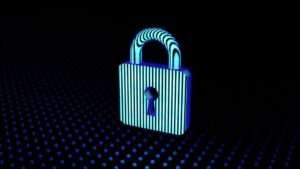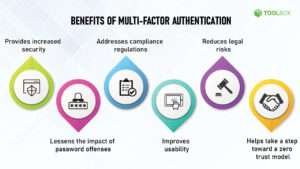Navigating the Digital Landscape
In today’s fast-paced digital world, email security stands as a paramount concern for businesses and individuals alike. With cyber threats evolving constantly, ensuring robust email security measures is no longer optional—it’s essential for safeguarding sensitive data, protecting against phishing attacks, and maintaining the integrity of communication channels.
Ensuring Confidentiality with Email Encryption

Email security encompasses a range of practices and technologies designed to protect email accounts, data, and communications from unauthorized access, interception, and manipulation. As cybercriminals continue to employ sophisticated tactics, such as business email compromise schemes, email encryption emerges as a critical component in the arsenal against cyber threats.
Defending Against Phishing Attacks

Cybersecurity experts emphasize the importance of proactive measures to prevent phishing attacks, which often exploit human vulnerabilities to gain unauthorized access to sensitive information. Implementing robust email security solutions can help mitigate the risks associated with phishing and other cyber threats, safeguarding both personal and organizational data.
Email Security Leading to Data Protection
One of the key aspects of email security is data protection, ensuring that confidential information remains secure during transit and storage. By leveraging advanced email encryption technologies, organizations can enhance email privacy and secure sensitive data against unauthorized access, thereby maintaining compliance with regulatory requirements and safeguarding against data breaches.
Effective email security strategies also involve raising awareness among users about common cyber threats and best practices for phishing prevention. Training programs and educational initiatives can empower employees to recognize and report suspicious emails, reducing the likelihood of falling victim to phishing attacks and other forms of cybercrime.
In today’s interconnected world, secure email communication is essential for maintaining trust and confidentiality in both personal and professional interactions. Whether it’s exchanging sensitive business information or communicating with friends and family, ensuring the privacy and integrity of email communications is paramount.
Strengthening Authentication with Multi-Factor Authentication

Now, let’s delve deeper into some practical email security tips and best practices:
- Use Strong Authentication: Implement multi-factor authentication (MFA) to add an extra layer of security to email accounts, requiring users to provide multiple forms of verification before gaining access.
- Regularly Update Software: Keep email software and security tools up to date to ensure they can effectively detect and mitigate emerging cyber threats.
- Employ Email Filtering: Utilize email filtering solutions to automatically detect and block suspicious emails, including spam, malware, and phishing attempts.
- Encrypt Sensitive Data: Encrypt emails containing sensitive information to protect them from unauthorized access, ensuring that even if intercepted, the data remains unreadable to unauthorized parties.
- Stay Vigilant: Train employees to be cautious and skeptical of unsolicited emails, especially those requesting sensitive information or urgent action.
By adopting these email security best practices and leveraging advanced email security solutions, organizations can fortify their defenses against cyber threats and protect their digital assets from potential harm.
Prioritizing Email Security in the Digital Age
In conclusion, the significance of email security in today’s digital landscape cannot be overstated. As cybercriminals continue to exploit vulnerabilities in email systems, prioritizing email security is essential for safeguarding sensitive data, protecting against phishing attacks, and preserving the trust and integrity of digital communications.





